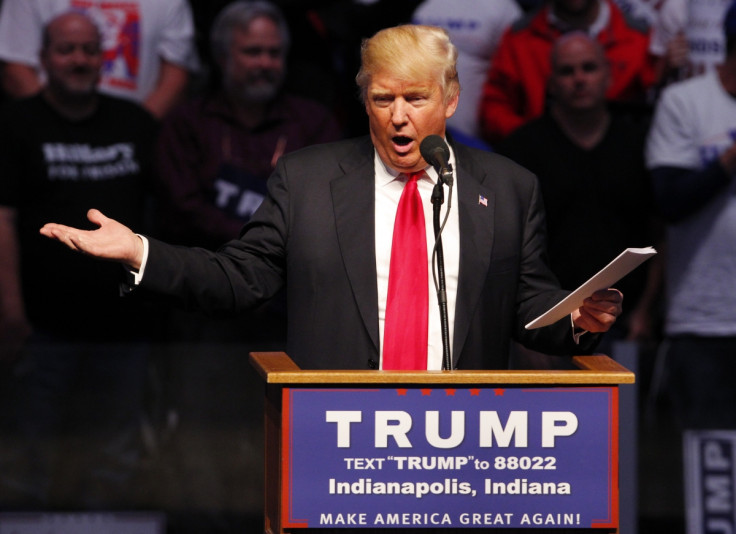Donald Trump accused China of 'raping America' - so why is Beijing so happy he won?
Chinese state media said that 'election talk was just election talk'.

Donald Trump put standing up to China at the heart of the America First programme that helped get him elected US president, vowing to crackdown on Beijing's manipulation of its currency and impose tariffs on Chinese imports to make American companies more competitive.
China, like most other world powers, congratulated Trump after his historic defeat of Hillary Clinton on November 8. Xi Jinping is understood to have told the president-elect that he "looked forward to working [to] uphold the principles of non-conflict, non-confrontation [and] mutual respect".
But while the congratulations that flowed in from other world leaders that had previously attacked Trump were likely made through gritted teeth, Beijing's positivity could well be genuine. Despite Trump's rhetoric during the campaign, Clinton was actually seen as the bigger threat to China.
Beijing views Trump as a pragmatist, who is unlikely to rail against China regarding human rights abuses or the impact of Chinese industrialisation on the environment. They see his attacks on China as part-and-parcel of a US election, a tactic used by every president from Barack Obama to Bill Clinton.
Trump famously accused China of "raping our country". However, in an editorial a day after the election, Chinese state media outlet Xinhua said: "Election talk is just election talk".
Meanwhile, on the street, Chinese perceptions of Trump are broadly positive: "Many in China see him as a strongman. They like him in the same way they like Putin or Duterte," said Shaun Rein, managing director of the China Market Research Group (CMR).
Reuters reported that "Trump has won" was the most searched term on Chinese internet portal Weibo on Wednesday afternoon in Asia, well before the race was called for the billionaire.
As for his potential anti-China economic policies, Trump's allegations about cheap Chinese products impacting the US economy is something of a red herring, according to Rein. Chinese manufacturing has moved beyond the low-end products that would be impacted by tariffs and are now made in countries like Vietnam and Indonesia. "Trump is criticising a China from ten years ago," he said.
But there are a number of sticky issues in Sino-US relations that could come to the fore with Trump in the White House. Beijing has been fighting a domestic battle for further control over Hong Kong and flexing its muscles in the South China Sea, where it is involved in territorial disputes with Vietnam, the Philippines, Malaysia and, further north, Japan.
Trump wants to reduce America's involvement in the affairs of its neighbours, particularly in the Middle East, but in his acceptance speech on Wednesday he said he wanted good relations with America's neighbours as long as they were "willing to get along with us". That has been taken as a warning that Trump's America won't go looking for a fight – but it will not shy away from one either.
China's sentiments are similar: nationalism has come to the fore under Xi Jinping, who has not been afraid to flex Beijing's military might in its immediate sphere of influence – the South China Sea, the East China Sea and Kashmir. Beijing is hoping that America first doesn't mean China second, and that the world is a big enough playground for both of them.
© Copyright IBTimes 2025. All rights reserved.






















